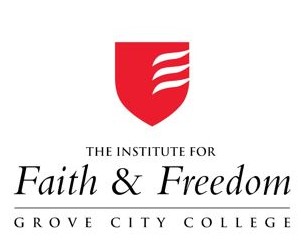Dem Contradictions on Fairness – And A Conservative Opportunity

If you believe that the nation’s economic system is fundamentally unfair, then how would you logically explain why it’s nonetheless fair to you?
That’s an explanation that we ought to demand of self-identified Democrats who gave wildly contradictory responses to a memorable Gallup Poll from 2012 probing the trendy issue of income inequality. Only 37 percent agreed with the statement “The US economic system is fair” but more than two-thirds (68 percent) considered it “fair to me personally.” In other words, far more Democrats than Republicans or Independents considered our system unfair in general at the same time that far fewer Democrats than Republicans or Independents thought that they themselves had been unfairly treated.
According to this survey, an amazing 31 percent of Dems embraced the odd position that society dealt with others less justly than it dealt with them. That’s particularly surprising given the Democratic Party’s efforts over the last fifty years to assemble a winning coalition of purportedly oppressed victims – the poor, disadvantaged minorities, gays, teachers and other aggrieved groups. While it’s true that Republicans and Independents also felt more satisfied with their own experience of fairness than with their general perceptions of social justice, the differences were far less substantial – 12 percent among independents, and only 8 percent among Republicans, compared the Democratic differential of 31 percent.
In a sense, these numbers should encourage conservatives that some of our Democratic neighbors are hardly beyond persuasion and redemption. If they believe that the “US economic system is fair to you personally” then that means that they haven’t abandoned hope in their own ability to rise. This corresponds to the reassuring results of an NBC News/Wall Street Journal Poll from September, 2013 that asked a pointed question to the 40 percent of respondents who described themselves as “poor” (12 percent) or “working class” (28 percent). The survey asked: “What is the likelihood that you will be middle class in the next five to seven years?” A clear majority – 59 percent – considered that improvement in their status to be “very likely,” “fairly likely” or “somewhat likely.”
If most Americans who are struggling for a decent life seem to maintain some level of hope for personal economic progress, then why would so many them seem to have given up on the economic system in general?
Answering that question requires some consideration of the influence of mass media, which disproportionately emphasize bad news about the nation at large. The sharply declining crime rate of the last two decades gets scant coverage in the press, but every lurid murder receives exhaustive attention. The thousands of planes that land safely every day never make for an interesting story, but we’re inevitably riveted by every tale of transportation disasters. The scandal surrounding four days of bridge closures in Fort Lee have received far more national attention than four years of Chris Christie’s undeniable accomplishments as a reformist governor of New Jersey.
In other words, the networks and the newspapers and most of the leading websites don’t comprise a “news business” but a “bad news business.” The famous media critic Leo Tolstoy said it well at the very opening of Anna Karenina: “All happy families are alike; each unhappy family is unhappy in its own way.”
This helps to explain why Americans regularly express great satisfaction in their own jobs, medical care, schools, neighborhoods and marriages but when you ask them about the general state of jobs, medical care, education, neighborhoods and marriage, they give much darker assessments. When it comes to assessments of our own well-being and good fortune we rely, quite naturally, on our own experience. But when we consider the state of things beyond our own private domains, we tend to rely on mass media and their obsessive portrayal of disaster and dysfunction.
This also explains the almost unstoppable tendency to cast votes to re-elect our own local Representatives even when the Congress as an institution is less popular than toe fungus. As with our own doctors and our kids’ teachers, so too with our elected officials: “Yeah, this guy I vote for year after year is hard-working and likable, nothing like the rest of those crooks and scoundrels in Washington.”
If my hunch is correct and media messages help to explain the gap between assessments of societal fairness and fair treatment for each individual, then why would those media influences impact Democrats more dramatically?
The answer is easy: because every survey for at least thirty years has shown Democrats (and African-American Democrats in particular) watching far more television every day than Republicans or independents. Of course, most of the TV that all Americans consume is entertainment or reality shows, rather than news, but this programming features the same emphasis on conflict, dysfunction, difficulty and weirdness that can be found in the nightly news.
This situation provides an opportunity for Republicans and independent right-wingers who understand that improving attitudes toward free market institutions is a necessary step toward winning hearts and minds to the conservative cause. In addition to telling stories of adversity and pain, we should do whatever we can to encourage more media focus on tales of inspiration and uplift and celebration. That sort of story-telling, in both news and entertainment, will help promote the notion that individuals who feel satisfied with the fairness of their own lives actually represent the rule, and not the exception, for the United States of America.
This column originally appeared at TruthRevolt.org on February 6, 2014.




















